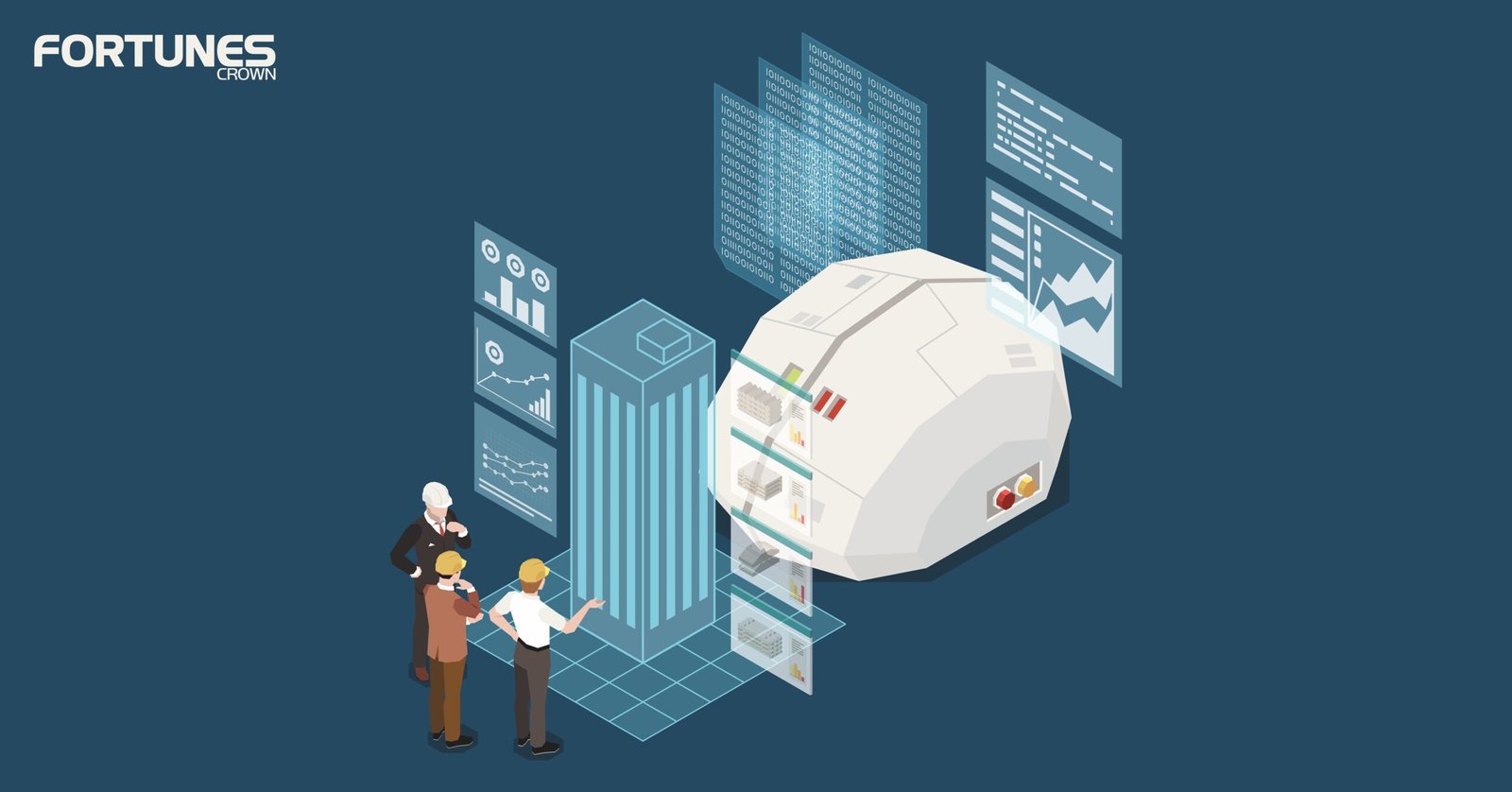The indulgence of Artificial intelligence in our everyday life has made it a bit more advanced and quicker in a few ways. It is no secret that we depend on Artificial Intelligence in more ways than one. The smartphone in your hand, the elevator in your building, the Alexa/google sitting on your desk, or the laptop you’re working on. Artificial Intelligence surrounds us. Artificial Intelligence has also made its way to commercial means- Artificial Intelligence powered food takeaway centers, banking systems, and grocery stores have been developed.
With the involvement of AI in our lives at that level, the idea of using AI to make efficient and more customized renovation and maintenance projects isn’t too far-fetched. Taking advantage of its analysis and observation characteristics
Using advanced analytics, architects can now create tens of thousands of different structure designs, then pick the finest ones to refine. Additionally, cutting-edge technology automates the construction of floorplans and even offers value to the 3D printing sector by allowing robots to optimize the printing process and fix errors immediately.
Additionally, real estate investors profit. They use computers to identify renovation projects that will generate the most profit rather than relying on poor human judgment. Additionally, while AI-powered solutions could initially be expensive and data-intensive, they will eventually become more accessible. Then, smaller businesses will have access to cutting-edge technologies that will enable them to compete with major industry players.
Renovating Renovation
Because Pinterest and Instagram have cultivated an appreciation for design among younger generations renovations have become a competition in what is practically possible and matching an aesthetically pleasing mood board. Nevertheless, design is a legitimate field, and homeowners who want to complete renovations successfully need extremely detailed blueprints, which frequently necessitate expert assistance at a premium. And it only applies to a regular, predictable market.
There is little doubt that the real estate market is now tight, and there are constant disruptions to the supply chain. As a result, the process of home restoration leaves little to no room for error. As an illustration, consider the first pre-construction documentation procedure. When measurements are off, clients may have to wait months for cabinets, countertops, appliances, and flooring.
The tech world is starting to recognize these problems and is searching for novel approaches to make the remodeling process easier for homeowners and designers. An utterly manual design and documentation procedure are typically costly. The end user saves money with 3D scanning technology and AI-generated blueprints, and they also offer a higher level of accuracy.
The project timetable can be shortened by weeks using 3D scans, which take a half-hour to complete and are ready for usage in only a few days. AI and 3D scans together provide additional detail, precise measurements, and insight into the state of the kitchen today. Now, before moving further, the client and designer can more clearly see the budget and ascertain needs and wants.
Intelligent Heating Systems
Artificial intelligence has been used in HVAC (Heating, Ventilation, and Air Conditioning) systems for some time now. No, there isn’t a tiny robot controlling the temperature inside your air conditioner with its robotic arms. HVAC systems use “machine learning,” a type of artificial intelligence, to assist the equipment to become more energy efficient.
An HVAC system is made to keep you and your family comfortable regardless of the weather outside. You’re feeling fewer drafts, chilly or hot places, and other discomforts that your forefathers took for granted as innovations and technology evolve. Artificial intelligence (AI) will increase creature comfort even further in the future.
For instance, technology for heat and motion detection is already used in numerous applications. Multiple detectors in a home may eventually start to “track” you and your family members as you go about your everyday activities.
More sophisticated AI systems are currently doing the same activities. Smart thermostats can “learn” how you prefer your home’s temperature to change over a week and modify their settings accordingly. In addition, many consumers can now use a Wi-Fi connection to remotely operate their thermostats or HVAC systems.
By only heating or cooling the portions of the home that the family is using, the heat- and motion-detection technology currently on the market further reduces energy consumption.
Companies like Craig Bell’s Bell Decorating Group want to research and ponder more over the solutions and benefits we could enjoy when AI-based heating systems are installed in houses, commercial and office spaces.
Planning Of Floorplans
Stanislas Chaillou, a computer researcher, has also shown how AI could enhance architectural design procedures. He created an algorithm that generates floorplans for many architectural types, such as Victorian, Baroque, and Row houses. According to the study Chaillou conducted at Harvard University, each architectural style has its own set of parameters that computers can recognize and use. With the help of this innovation, architects can create floorplans and cohesive room layouts automatically. The software can also change floorplans from one style to another, enabling designers to experiment with a variety of visuals before settling on one.
AI innovation is changing how we approach construction projects. In the future, algorithms may not only be used to create homes but also to power intelligent 3D-printing robots that can construct structures with little assistance from people. Smart technology already determines which neighborhoods will be rehabilitated, and AI is used by architects to create ever-more innovative designs that push the boundaries of aesthetics. Innovative technology will eventually help the entire market and enhance people’s lives, even though giant corporations will first reap the most of the benefits.
Designers and architects can concentrate on higher-value tasks like design direction, customer interactions, and business development since AI provides more accurate and clear information upfront. Additionally, it enables them to accept projects they would otherwise have to turn down and service additional clients.








